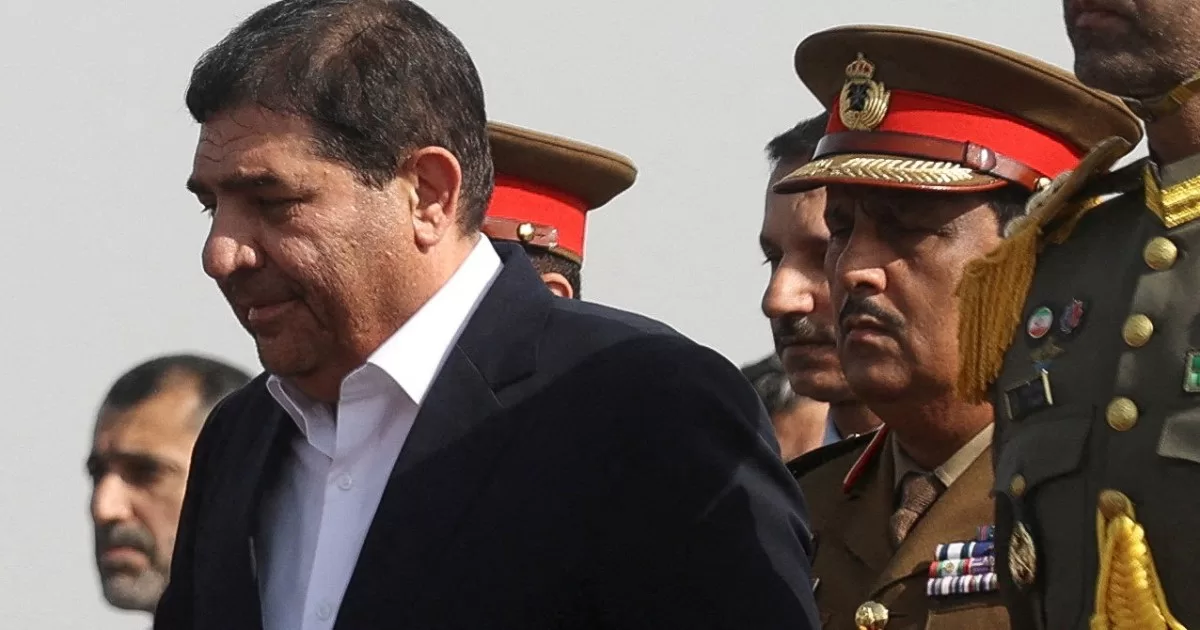Mokhber led the Iranian supreme leader’s multibillion-dollar charitable conglomerate for 14 years.
The former first vice president held an extraordinary meeting with judiciary chief Gholamhossein Mohseni Ejei and Mohammad Bagher Ghalibaf, the parliament speaker, on Monday morning.
As per the constitution, the three must set things in motion for a new presidential election to be held within 50 days.
Mokhber will remain interim president until then. “We will follow the path of Raisi in doing the duties entrusted without any disruptions,” he was quoted as saying by state media.
First vice president
Mokhber was appointed first vice president by Raisi in August 2021, shortly after Raisi took office.
He is the seventh person to serve in that role since the revision of the constitution in 1989 – and one of the most influential.
As first vice president, Mokhber travelled across the country to inaugurate a variety of government development projects and accompanied Raisi or led delegations himself on many foreign trips. He is reported to have visited Russia, along with senior military and security officials, to discuss arms transfers.
Mokhber was on a list of individuals and entities sanctioned by the European Union in 2010 for alleged involvement in activities concerning Iran’s nuclear and ballistic missile programmes. Two years later, the bloc removed him from the list.
Unlike other countries, Iran’s first vice presidency is an appointed – not elected – position that assumed some of the powers of the prime minister after the position was abolished in 1989.
There are several appointed vice presidents serving concurrently in Iran, each taking on different aspects of executive affairs but operating mostly like a cabinet.
Mokhber’s position was the top among vice presidents.
He was selected because he had a strong connection with the office of the supreme leader, like the late president himself, and the Islamic Revolutionary Guard Corps (IRGC).
He was also seen as a man of action with longstanding experience in managing large-scale executive affairs.
Setad
Before his appointment to the vice presidency, Mokhber served for 14 years as head of Iran’s Setad, or the Organisation for the Execution of Imam Khomeini’s Order.
Setad is a highly powerful economic conglomerate established under Iran’s first supreme leader, Ayatollah Ruhollah Khomeini, to focus on charitable affairs.
It is now believed to be worth tens of billions of dollars and remains under the direct control of the Iranian supreme leader.
Setad and Mokhber were sanctioned by the United States in 2021, with the US Treasury claiming the organisation was involved in rights violations among other things, including violating “the rights of dissidents by confiscating land and property from opponents of the regime”.
Mokhber was the head of Setad during the onset of COVID-19, at a time when Iran was hit by far the worst by the pandemic in the Middle East. Nearly 150,000 people died of COVID, according to official numbers – with actual numbers believed to be much higher.
Under his watch, Setad developed COVIran Barekat, the main coronavirus vaccine manufactured by the state.
Early life
Born in Dezful in the southwestern province of Khuzestan, the 68-year-old was educated in electrical engineering and also holds a PhD in international law.
He was active in banking and communications earlier in his career, having operated as the head of the Khuzestan Telecommunications Authority and then being promoted to deputy governor of the province in the 1990s.
Before moving up to the Setad, Mokhber was a deputy at another bonyad, the powerful Mostazafan Foundation which was also founded by Supreme Leader Khomeini as a charitable foundation.
